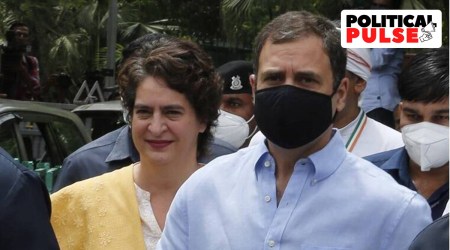While the internet is frequently associated with George Orwell’s dystopian novel 1984, a better association could be with William Shakespeare’s phrase “all the world’s a stage” from As You Like It. The phrase is representative of the creative sector on the Internet today, more so of the global music industry.
Technology has democratised the music industry globally. Easy access via smartphones has made it possible for people across the world to listen to new releases and songs at the same time. Ad-supported streaming services make it possible for listeners across Brooklyn to Birmingham and Bhopal to Brisbane to play the same song free of cost. Today music truly knows no boundaries of languages and new genres strike a chord across nationalities. The success of songs such as “Despacito” by the Puerto Rican singer Luis Fonsi and “Love Nwantiti” by the Nigerian artist Ckay — that occupied the top spot on the IMI international charts in India for several weeks last year — testify to the reach of streaming services. K-Pop is now a multi-billion-dollar enterprise and has listings on the NYSE. The congratulatory messages to the K-Pop band BTS on its ninth anniversary on June 13 are just another indicator of the popularity of this music genre.
Indian music is also witnessing democratisation, though in a much smaller measure. “Why This Kolaveri Di” in Tamil, “52 Gaj Ka Daman”, a Haryanvi track, and the Punjabi laced soundtrack of Shershaah have all crossed 1 billion music streams.
Globally, more than eight billion dollars plus have changed hands because of mergers and acquisitions in the music industry since 2020. However, the Indian music ecosystem has seen a trickle of global investments. Unlike “Despacito”, K-Pop and “Love Nwantiti”, Indian music has not touched global heights and is almost non-existent on the global stage or international charts.
Despite a rich talent pool, antiquated laws mandating statutory licensing for radio and television broadcasts — there’s also the threat of such licensing being extended to internet services — have created an atmosphere of uncertainty. Ambiguity in registrations of copyright societies — associations formed by authors and other owners of original works that have the power to grant copyright licences — and confusion in rules pertaining to royalty collection societies are big hurdles. The misuse of safe harbour provisions also erodes the value for all stakeholders in the music industry.
All this hampers investment plans of record labels who prefer to stick to genres that work — film soundtracks, for example — leaving no money for talent development in new genres or deeper investments in traditional genres. It also deters new players wanting to enter the Indian market. Copyright reforms could create a climate that encourages robust investments in all genres of music across the country. With 26 languages and 20,000 dialects, it is not difficult at all for the next “Despacito”, “Gangnam Style” or a group like BTS to originate in India.
Let’s step aside to look at the reason for the introduction of statutory licensing in 2010: To support a fledgling private radio industry. However, in 2019, radio was Rs 3,500 crore and recorded music a Rs 1,200 crore industry. Here, David fuels Goliath. Further, streaming services, given their rich valuations, have no need for financial support via statutory licensing.
The music industry parallels the pharma industry, start-up sector and portfolio management services. As per IFPI, $5.8 billion is spent every year globally on the creation of new music and the discovery of fresh talent — akin to pharma inventing new blockbuster drugs. Similarly, deep investments will be needed to discover new genres and talent across languages in the Indian music space. In the Indian traditional and regional space, the returns on investments are meagre due to low ad-spends and subscriptions. Hence, even the most enterprising record labels or enthusiastic investors have no incentive to invest in the regional and traditional music markets.
Telecommunications Minister Ashwini Vaishnaw has talked of bringing India at par with China and South Korea, that boast of a robust 5G network. He has talked of an ecosystem wherein the telcos themselves would be free to set tariff rates based on their understanding of consumers. One hopes for a similar vision with respect to copyright licensing for the music industry.
The creative community benefits most when there are profits to be shared. A vibrant music ecosystem will bring in fresh investments across the board, ranging from new genres to concert venues. I-Pop could enable job creation and create gig economy opportunities. And, of course, soft power is invaluable currency.
The writer is President and CEO Indian Music Industry


